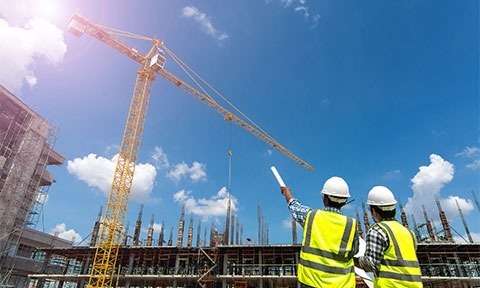Operation & Maintenance of Water, Effluent and Sludge Treatment Plants
- Operation & Maintenance of Water Training focuses on sewerage systems & pumping stations.
- The course covers preliminary treatment, primary settlement, biological treatment, secondary settlement, tertiary treatment.
- It also includes auxiliary units, sludge management, thickening, treatment, health & safety, and environmental aspects.
- The training emphasizes practical operational tasks and simple design criteria for efficient water treatment processes.
- It is designed to address health and safety risks in waste water treatment works.
Overview
The Operation & Maintenance of Water Training course is a comprehensive 3-day program covering various stages of water treatment processes. It includes topics such as sewerage systems, preliminary treatment, biological treatment, sludge management, and health & safety considerations. Participants will learn about the installation, operation, and maintenance of different treatment units, emphasizing the importance of correct procedures and daily tasks for efficient plant operation. The course aims to equip individuals with the necessary knowledge and skills to manage water treatment facilities effectively.
Who should attend
Maintenance Engineers
Course Content
Course Outline (3 Day Course)
Stage 1 – Sewerage systems & pumping stations
• Surface water and foul sewerage systems
• Combined sewer overflows
• Duty/standby/assist pumps & the level control systems
• Effects of Hydrogen Sulphide corrosion
• Need for confined space protocols & effect of methane, petroleum products, oxygen scavengers etc.
• Odour control
• Lifting and maintenance of pumps
Stage 2 Preliminary Treatment
• Screens: installation, controls, wash water systems, effects of grease
• Grease removal: systems and operating principles
• Grit removal: systems and operating principles
Stage 3 Primary settlement
• Reason for installation of primary settlement and simple design criteria, retention time, hydraulic loading etc.
• Radial flow , horizontal flow, imhoff tanks and lamella settlers
• Importance of effective scum boards and central baffles
• Effects of rising sludge
• Auto & manual desludging and why it is important that desludging is done correctly.
Stage 4 Biological treatment
• Function of biological treatment stage introducing concepts of BOD, COD & Ammonia.
• Filters
• Motor driven distributors, siphon dosing
• Routine operational issues such as sparge hole cleaning & rotation mechanism of distributors and air flow through media.
• Flies & other nuisances
• Activated Sludge: simple design principles, operation, daily tests
Stage 5 Secondary Settlement
• Reason for installation of secondary settlement and revisiting simple design criteria discussed in primary settlement stage.
• Radial flow , horizontal flow and lamella settlers
• Settlement problems , symptoms effects & solutions
• Humus sludge co settlement
• Re emphasis on the importance of correct de-sludging techniques.
• Daily tasks to be undertaken. Why there is a need to clean channels, weirs, scum boxes etc.
Stage 6 Tertiary Treatment
• Reasons for use and typical processes employed including Reed beds, Grass plots, CSF’s, RGF’s , lagoons
• Each process will be described along with simple design criteria and daily operational tasks which need to be employed to ensure that such process units work effectively & efficiently.
Stage 7 Auxiliary units
A “catch all” stage discussing the principles & simple design criteria of process units which do not fit into the above, for example;
• Wash water units
• Odour control systems
• Process control systems
• Monitoring and sampling issues.
Stage 8 Sludge
• Sources, characteristics, effect of mixing/co-settling
• Disposal options, including treatment prior to disposal
Stage 9 Sludge thickening
• Flocculants & coagulants
• Principles of dosing, including test techniques , CST etc)
• Belt presses, centrifuges and filter presses. Including simple design criteria and daily operational tasks.
• Effective & correct return of sludge liquors to the works flow.
Stage 10 Sludge treatment
Looking at :
• Mesophilic and thermophillic anaerobic digestion
• Lime conditioning
• Composting
• Fluidised bed Incineration
• Vermiculture
• Willow coppice treatment
Including a description of how each process works ,simple design criteria and the routine operational tasks required with each process.
Stage 11 Health and Safety and Environmental
A discussion of the wide ranging risks to health & safety encountered on a waste water treatment works and the precautions which must be taken.
Duration: 3 Days
Cost: £995 + VAT
Effluent and Sludge Treatment Plant Training UK, Scotland, England, Saudi Arabia, Bahrain, Kuwait, Qatar, Abu Dhabi, Dubai, India, Ghana and Nigeria is also available.



